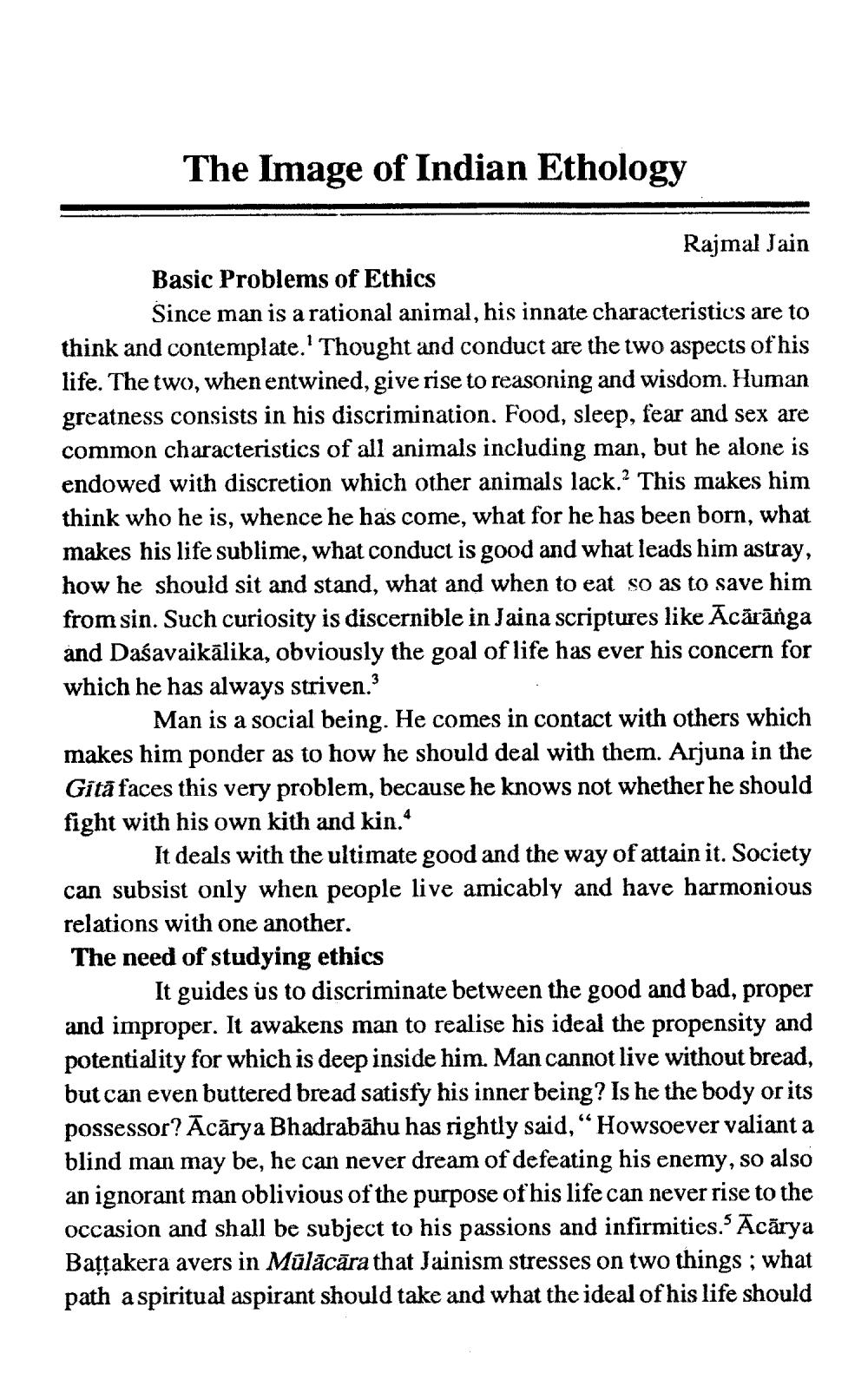________________
The Image of Indian Ethology
Rajmal Jain Basic Problems of Ethics
Since man is a rational animal, his innate characteristics are to think and contemplate.' Thought and conduct are the two aspects of his life. The two, when entwined, give rise to reasoning and wisdom. Human greatness consists in his discrimination. Food, sleep, fear and sex are common characteristics of all animals including man, but he alone is endowed with discretion which other animals lack.? This makes him think who he is, whence he has come, what for he has been born, what makes his life sublime, what conduct is good and what leads him astray, how he should sit and stand, what and when to eat so as to save him from sin. Such curiosity is discernible in Jaina scriptures like Ācārānga and Daśavaikālika, obviously the goal of life has ever his concern for which he has always striven.”
Man is a social being. He comes in contact with others which makes him ponder as to how he should deal with them. Arjuna in the Gitā faces this very problem, because he knows not whether he should fight with his own kith and kin.
It deals with the ultimate good and the way of attain it. Society can subsist only when people live amicably and have harmonious relations with one another. The need of studying ethics
It guides us to discriminate between the good and bad, proper and improper. It awakens man to realise his ideal the propensity and potentiality for which is deep inside him. Man cannot live without bread, but can even buttered bread satisfy his inner being? Is he the body or its possessor? Ācārya Bhadrabāhu has rightly said, “Howsoever valiant a blind man may be, he can never dream of defeating his enemy, so also an ignorant man oblivious of the purpose of his life can never rise to the occasion and shall be subject to his passions and infirmities. Ācārya Bațțakera avers in Mülācāra that Jainism stresses on two things; what path a spiritual aspirant should take and what the ideal of his life should




